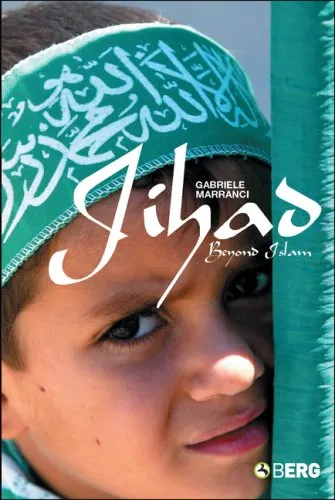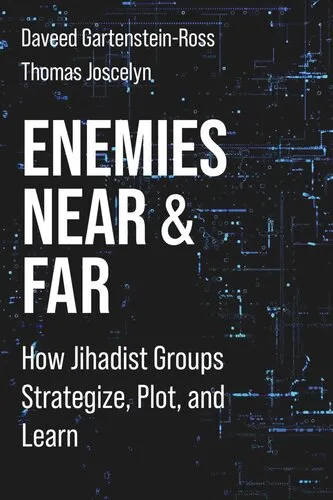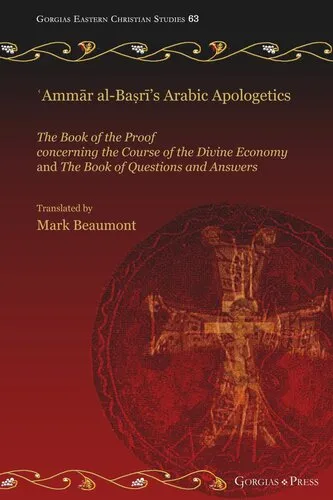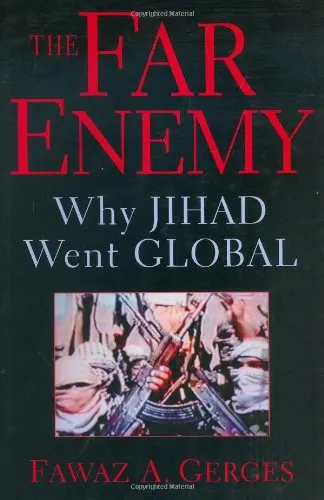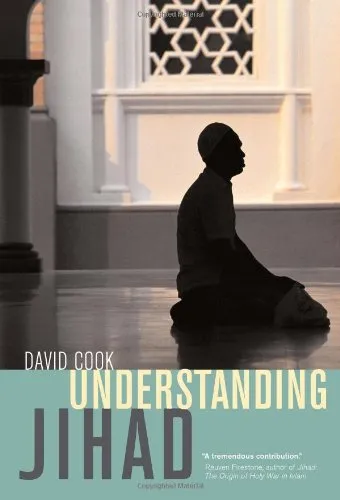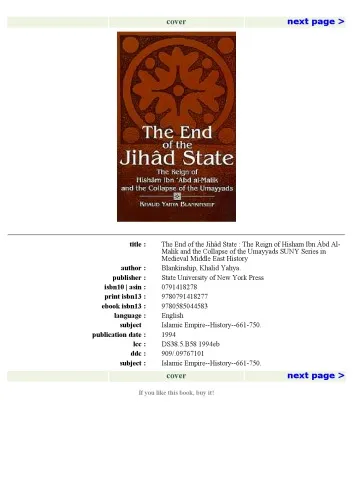Jihad Beyond Islam
4.0
Reviews from our users

You Can Ask your questions from this book's AI after Login
Each download or ask from book AI costs 2 points. To earn more free points, please visit the Points Guide Page and complete some valuable actions.Related Refrences:
Introduction
Jihad Beyond Islam, authored by Gabriele Marranci, delves into one of the most misunderstood and controversially debated topics of our era: jihad. Rather than reiterating conventional narratives or media-driven stereotypes, the book seeks to deconstruct and analyze jihad through a multidimensional lens. By exploring the emotional, sociopolitical, and existential factors that drive individuals to engage with this concept, Marranci challenges readers to move beyond simplistic assumptions and understand jihad as a nuanced and dynamic phenomenon, deeply rooted in individual and cultural contexts.
This groundbreaking book goes beyond mere historical or theological delineations of jihad. Marranci employs an anthropological approach, combined with in-depth fieldwork and personal interviews, to reveal the personal and emotional dimensions that inform and shape the meaning of jihad for Muslims worldwide. The author argues against monolithic views of Islam and its practices, urging a profound reconsideration of how various social, emotional, and existential realities create diverse meanings of jihad. The book not only confronts biases within Western discourses but also critiques how Muslims themselves engage with and interpret this contested concept.
Detailed Summary of the Book
At its core, Jihad Beyond Islam seeks to transcend the narrow and often polarizing definitions of jihad as either an act of violence or spiritual devotion. The author introduces readers to the diversity of interpretations surrounding the concept, avoiding blanket definitions and focusing instead on the human experiences and emotions that give it meaning in various contexts.
The book begins with an overview of the traditional scholarly interpretations of jihad, juxtaposing them with modern, politicized understandings. However, it quickly departs from this conventional analysis and steps into the realm of anthropology. By emphasizing personal narratives, Marranci highlights how feelings of alienation, injustice, or moral duty compel individuals to conceptualize jihad in ways that resonate with their lived realities.
Through compelling personal accounts, Marranci captures the deep emotional resonance jihad holds for different individuals. From spiritual seekers to those engaged in armed struggles, the book portrays jihad as a flexible and adaptive concept, one that is molded by personal experiences, cultures, and emotional states. The author also devotes significant attention to how Western socioeconomic and political dynamics foster certain extremist interpretations of jihad, framing it as a defensive act against perceived injustices.
The book’s anthropological approach sets it apart, as it scrutinizes how everyday life and existential anxieties intersect with religious identity to create a rich and complex tapestry of meanings for jihad. Marranci contends that to understand jihad fully, one must recognize the importance of emotions, relationships, and individual agency in shaping its interpretations. By doing so, Jihad Beyond Islam opens the door to new ways of thinking about Islam and its practices in contemporary societies.
Key Takeaways
- The concept of jihad cannot be confined to rigid definitions; it is highly contextual and deeply personal.
- Anthropological and emotional perspectives are essential for understanding the motivations and experiences behind those who engage with the idea of jihad.
- Religious practices like jihad are often shaped by external sociopolitical pressures, existential crises, and emotional vulnerabilities.
- Simplistic or monolithic views of Islam and jihad risk perpetuating misunderstandings and stigmas that hinder global relations.
- Engagement with authentic personal narratives and lived experiences can help deconstruct stereotypes and open avenues for dialogue and tolerance.
Famous Quotes from the Book
"Jihad is neither an essence nor a singular concept. Rather, it is a multifaceted and adaptive notion that finds its meanings not in texts, but in the lives of individuals."
"To understand jihad, one must delve beyond the doctrinal and into the emotional and existential. It is here, in the hearts of men and women, that its true meanings are born."
"The struggle for identity and dignity is what often transforms jihad from a scriptural ideal into a lived reality."
Why This Book Matters
Jihad Beyond Islam is a crucial contribution to modern Islamic studies, offering a fresh and empathetic perspective on one of the most often misinterpreted concepts in Islam. By shifting the conversation from abstract debates toward the human and emotional dimensions of jihad, Marranci encourages readers to engage with the subject without the distortions of fear or prejudice. This approach fosters greater understanding between Muslim and non-Muslim communities and challenges the rhetoric often employed by extremists and sensationalist media alike.
In a world increasingly polarized by religious and cultural misunderstandings, the book provides a vital tool for scholars, policymakers, and everyday readers seeking to bridge divides. It dismantles stereotypes and equips readers with the knowledge and insight to engage in more meaningful, informed discussions about Islam and its diverse practices. In doing so, Jihad Beyond Islam not only enriches academic discourse but also contributes to fostering a more inclusive and compassionate world.
Free Direct Download
You Can Download this book after Login
Accessing books through legal platforms and public libraries not only supports the rights of authors and publishers but also contributes to the sustainability of reading culture. Before downloading, please take a moment to consider these options.
Find this book on other platforms:
WorldCat helps you find books in libraries worldwide.
See ratings, reviews, and discussions on Goodreads.
Find and buy rare or used books on AbeBooks.
1422
بازدید4.0
امتیاز0
نظر98%
رضایتReviews:
4.0
Based on 0 users review
Questions & Answers
Ask questions about this book or help others by answering
No questions yet. Be the first to ask!
